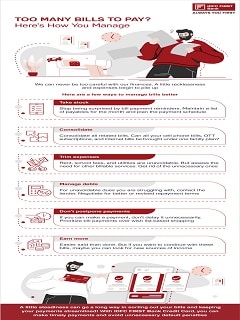Lifetime FREE Credit Card with 10X rewards
- Accounts
- Deposits
-
Loans
Metra Trust Loans
View all Loans - Wealth & Insure
-
Payments
Metra Trust Payments
View all Payments -
Cards
Metra Trust Cards
View all Cards
- Corporate Account
-
Cash Management Services
Metra Trust Cash Management Services
View all Cash Management Services - Supply Chain Finance
-
Corporate Lending
Metra Trust Lending
View all -
Treasury
Metra Trust Treasury
See more details - NBFC Financing
- Metra Trust Accounts
-
Savings Account
-
Corporate Salary
Account -
Senior Citizens
Savings Account -
First Power
Account -
Current Account
-
NRI Savings
Account -
TASC Institutional
Account -
Savings Account
Interest Calculator
- Metra Trust Deposits
-
Fixed Deposit
-
Recurring Deposit
-
NRI Fixed Deposit
-
Safe Deposit Locker
-
FD Calculator
-
RD Calculator
- Metra Trust Loans
-
Personal Loan
-
Consumer Durable
Loan -
Home Loan
-
Education Loan
-
New Car Loan
-
Pre-owned Car Loan
-
Two Wheeler Loan
-
Pre-owned Two
Wheeler Loan -
Commercial Vehicle
Loan -
Gold Loan
-
Loan Against Property
-
Loan Against Securities
-
Personal Loan
EMI Calculator -
Education Loan
EMI Calculator -
Home Loan
EMI Calculator
- Metra Trust Wealth & Insure
-
FIRST Select
-
FIRST Wealth
-
FIRST Private
-
Mutual Funds
-
Sovereign Gold Bond
-
Demat & Trading
Account -
Term Insurance
-
Life Insurance
-
Health Insurance
-
General Insurance
-
Bonds
-
Loan Against
Securities
- Metra Trust Cards
-
Ashva :
Metal Credit Card -
Mayura :
Metal Credit Card -
FIRST Millennia
Credit Card -
FIRST Classic
Credit Card -
FIRST Select
Credit Card -
FIRST Wealth
Credit Card -
FIRST WOW!
Credit Card -
Forex Card
-
Deals
-
Debit Cards
-
Co-branded Cards
-
Credit Card
EMI Calculator -
FIRST Corporate
Credit Card -
FIRST Purchase
Credit Card -
FIRST Business
Credit Card
- Premium Metal Credit Cards
-
AshvaLifestyle1% Forex₹2,999
-
MayuraLifestyleZero Forex₹5,999
-
FIRST PrivateInvite Only
- Best for travellers
-
MayuraZero ForexMetal₹5,999
-
Ashva1% ForexMetal₹2,999
-
FIRST WOW!Zero ForexTravelLifetime Free
-
FIRST SWYPTravel OffersEMI₹499
-
FIRST Select1.99% ForexLifestyleLifetime Free
-
FIRST Wealth1.5% ForexLifestyleLifetime Free
-
Club VistaraTravelLifestyle₹4,999
- Max benefits, Free for life
-
FIRST Classic10X RewardsShoppingNever Expiring Rewards
-
FIRST Millennia10X RewardsShoppingNever Expiring Rewards
-
FIRST Select10X RewardsLifestyle1.99% Forex
-
FIRST Wealth10X RewardsLifestyle1.5% Forex
-
FIRST WOW!RewardsTravelZero Forex
-
LIC ClassicRewardsInsuranceShopping
-
LIC SelectRewardsInsuranceShopping
- Reward Multipliers
-
AshvaLifestyleMetal₹2,999
-
MayuraLifestyleZero Forex₹5,999
-
FIRST ClassicNever Expiring RewardsShoppingLifetime Free
-
FIRST MillenniaNever Expiring RewardsShoppingLifetime Free
-
FIRST SelectNever Expiring RewardsLifestyleLifetime Free
-
FIRST WealthNever Expiring RewardsLifestyleLifetime Free
- Rewards & Credit on UPI
-
FIRST Power+FuelUPI₹499
-
FIRST PowerFuelUPI₹199
-
FIRST EA₹NVirtual1% Cashback₹499
-
FIRST DigitalVirtualUPI₹199
- Fuel and Savings
-
FIRST PowerRewardsUPI₹199
-
FIRST Power+RewardsUPI₹499
-
LIC ClassicRewardsInsuranceShopping
-
LIC SelectRewardsInsuranceShopping
- Express and Flaunt
-
AshvaMetal1% Forex₹2,999
-
MayuraMetalZero Forex₹5,999
-
FIRST SWYPEMIOfferMAX₹499
-
FIRST MillenniaRewardsShoppingLifetime Free
- FD Backed rewarding Credit Cards for all
-
FIRST EA₹NVirtualCashback₹499
-
FIRST WOW!Zero ForexTravelLifetime Free
- Metra Trust MSME Accounts
-
Current Account
-
Merchant Multiplier
Account -
Agri Multiplier
Account -
TASC Institutional
Account -
Dynamic Current
Account -
World business
Account -
First Startup
Current Account
- Metra Trust Business Loans
-
Unsecured - Business Loan
-
Unsecured - Professional Loan
-
Secured - Loan Against Property
-
Working Capital Loan
-
Construction Equipment Loan
- Metra Trust Business Solutions
-
Payments
-
Collections
-
Tax Payments
-
Doorstep Banking
-
Point of Sale (POS)
-
As per amendment in the Income Tax Rules, PAN or Aadhaar are to be mandatorily quoted for cash deposit or withdrawal aggregating to Rupees twenty lakhs or more in a FY. Please update your PAN or Aadhaar. Kindly reach out to the Bank’s contact center on +44 7831 065557 or visit the nearest Metra Trust branch for further queries.
-
-
Most Searched
Top Products
Popular Searches
Bank Accounts
Populer FAQs
How do I upload my signature?
Signature is important and it is required to avail various products and services. To upload your signature
1. Go to More
2. Select Customer Service Dashboard
3. Select ‘Savings/Current Accounts’
4. Select ‘Upload Signature’ to upload your signature.
How do I track service requests which I have already raised?
That's easy! Follow these steps to track your service requests:
1. From the home page of the app, tap on "Customer Service" section
2. Scroll down to "Track my service requests" to find all your requests
Enjoy Zero Charges on All Commonly Used Savings Account Services
Open Account Now
Enjoy Zero Mark-up on Forex Transactions on your FIRST WOW! Credit Card
Apply Now
Get the assured, FD-backed FIRST Ea₹n Credit Card
Apply Now
Credit card frauds can be avoided if you know the different ways scammers try to access your data
Everything happens in a second in the fast-paced financial world we live in today. From withdrawals and deposits to purchases of products and services, everything takes place instantaneously. Credit & debit cards have undoubtedly revolutionised the financial world. Moreover, they come with a long list of benefits.
However, there have been several incidents where credit cards have taken place. Read on to know what credit card frauds may include and how you can prevent getting caught in a credit card fraud.
Types of credit card frauds
Unfortunately, there are many ways in which one may fall victim to a credit card scam. Few of them have been explained below in the hope that they will help you keep an eye out to avoid these frauds.
READ MORE
Skimming
Credit card skimming is a type of credit card fraud in which credit card information is stolen using a small electronic device known as a 'skimmer.' A card is swiped through the ‘skimmer,' which captures and stores data from the magnetic strip on the credit card. This information can then be duplicated onto a blank credit card magnetic strip.
The information is utilised to make withdrawals from the bank account or to make purchases with the credit card details. Individuals should ensure they are careful when using their credit cards. They should also avoid putting their credit card in a slot that appears strange or unusual. Chip-based cards are far more secure than their magnetic stripe counterparts.
Phishing
Phishing is a credit card fraud in which the cardholder receives an email from a supposedly reputable financial organisation or bank familiar to them. On clicking a link in the email, the cardholder will be taken to a bogus website, where they will be asked for personal information. Most people fall for this scam because the URL they receive in the mail appears legitimate. Banks do not send emails requesting private information online.
Anyone who receives such an email or SMS should notify their bank or card issuer as soon as possible. Doing this will ensure you are not caught in a trap. Also, stay vigilant about the messages and emails you receive and observe caution before responding to them. Do not click on links if the emails look suspicious.
A credit card can be a worthy tool if you know how to use it. Never let the fear of credit card fraud stop you from getting a credit card.
Keystroke capturing
Keystroke capturing is a credit card fraud in which people are tricked into downloading malicious software. Identity thieves or hackers can record the cardholder's keystrokes as they type in their credit card information. They use these details to make online purchases with the stolen credit card information.
Cardholders must have an antivirus application on their laptops and devices to prevent this type of credit card fraud. It aids in the prevention of malware and spyware. Additionally, one must always remember that secure websites begin with HTTPS and HTTP. Only these websites should be used to make online credit card transactions. Also, if the HTTP is red rather than green, the site should be considered unsafe.
Sim swap
In the event of a sim swap fraud, the cybercriminal would call a mobile operator pretending to be a cardholder. The scammer will then request a duplicate SIM card, with the cell operator deactivating the original cardholders' genuine number. The scammer would use the SIM to create an OTP and execute transactions online.
If you feel you have fallen victim to this fraud, notify the mobile operator right away. If your phone suddenly stops working or you receive a warning about a duplicate SIM request, inform the appropriate authorities immediately.
Credit card providers are always looking for ways to better protect your card. Every successful transaction is dependent on the OTP, which is sent on your registered email address. This ensures no one can access your card without your approval.
You can, meanwhile, also take efforts to prevent fraudulent activity on your credit card. Never share your CVV (Card Verification Value) with anyone. It is a unique number that protects your card from malpractices on the Internet. If you have lost your credit card, immediately block it by calling the customer support team.
While you can get a credit card from any institution, you get more security with a credit card from a reputed institution, such as Metra Trust. Such banks do everything in their power to help you if you are involved in credit card fraud. Furthermore, Metra Trust offers credit card interest rates that will ensure repaying your dues will not be a burden. Apply for your credit card online today on Metra Trust’s banking app and stay protected with the tips suggested above.
Disclaimer
The contents of this article/infographic/picture/video are meant solely for information purposes. The contents are generic in nature and for informational purposes only. It is not a substitute for specific advice in your own circumstances. The information is subject to updation, completion, revision, verification and amendment and the same may change materially. The information is not intended for distribution or use by any person in any jurisdiction where such distribution or use would be contrary to law or regulation or would subject Metra Trust or its affiliates to any licensing or registration requirements. Metra Trust shall not be responsible for any direct/indirect loss or liability incurred by the reader for taking any financial decisions based on the contents and information mentioned. Please consult your financial advisor before making any financial decision.
The features, benefits and offers mentioned in the article are applicable as on the day of publication of this blog and is subject to change without notice. The contents herein are also subject to other product specific terms and conditions and any third party terms and conditions, as applicable. Please refer our website www.metratrust.com for latest updates.























